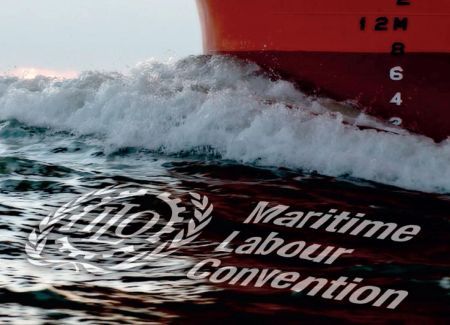
The “fourth pillar” of maritime regulation – the Maritime Labour Convention (MLC) – is now in place and along with high hopes for trouble-free implementation, will be soon making its mark. Will it really make a difference?
It is worth noting the level of consensus between the parties, which worked hard to modernise and rationalise the numerous International Labour Organization (ILO) ILO documents and produce a convention appropriate to 21st century shipping. It has arrived at its present stage with the enthusiastic assent of ship owners, governments and seafarers’ organisations and, it has to be said, with a great deal of goodwill. It is global in scope and ambition and is designed to provide the “level playing field” in which all parts of the international shipping industry are able to operate and flourish.
It is also designed for uniformity of enforcement, so that the internationally trading merchant ship will not face different standards and ambiguous interpretations as it moves from port to port around the world. It has a clear reporting system to keep track of progress, something that is particularly important in the early years of implementation. Its authors would seem to have covered every eventuality and of course it is supported by BIMCO, whose practical members have contributed greatly to this.
But like the SOLAS, MARPOL and STCW conventions which have preceded it, the success of the MLC will depend heavily upon the sincerity and professionalism of both the regulators and those in the industry itself. It might be suggested that the “human element”, in the shape of the MLC inspectors and indeed those being inspected, will be crucial if the new convention is to come up to its expectations.
It is clear that well-organised shipping companies, which have engaged with the processes in good time and whose processes are aligned with the convention, will have little to fear (as will those seafarers who work for them). All within this responsible and professional part of this industry will hope that the convention’s impact will be positive in that it will force the less responsible and less professional elements to improve their ways, or leave the business.
It is idle to suppose that for all the high hopes, there are no worries about its implementation. There is concern about both sincerity and professionalism in those countries in which corruption is a fact of maritime life. There are worries about certificates being issued by corrupt or incompetent flag state authorities, and the possibility of inspection regimes in these places treating the MLC as just another source of income from visiting ships, with masters being harassed and ships being delayed.
There is some residual concern about some administrations “gold-plating” the convention’s regulations or causing problems over their interpretation aboard special ships, or where the status of people aboard might appear ambiguous. There may be problems which will initially arise on account of the number of flag states which are still to ratify the MLC, but whose ships will, of course, be subject to inspection.
It is fair to say that the industry and the ILO have anticipated these issues, with its provisions for monitoring the convention and requirements for annual “audits” of its effectiveness. Those flag states which are experiencing problems do have the opportunity to solicit advice and technical assistance from the ILO.
But the MLC is in being and all sides are hoping that its introduction will be smooth and that it will really make a difference. Sincerity and professionalism are the keys to this desirable object.
Articles written by the Watchkeeper and other outside contributors do not necessarily reflect the views or policy of BIMCO.
We use cookies to improve your experience. By continuing to use our site, you accept our Cookies, Privacy Policy,Terms and Conditions. Close X